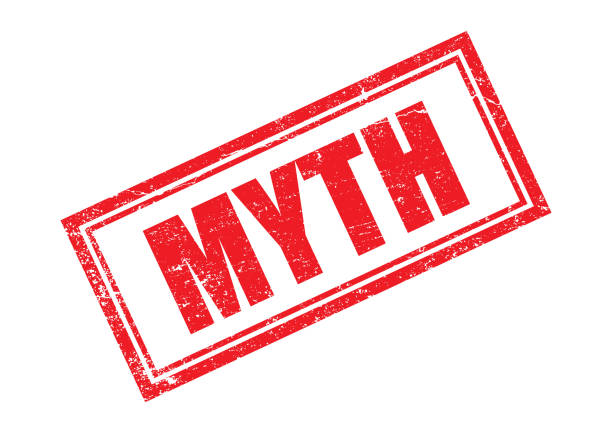Virtual Private Networks (VPNs) have become an integral tool for internet users concerned about privacy, security, and unrestricted access to online content. However, despite their widespread use, several misconceptions about VPNs persist, leading to confusion and misinformation among users. In this article, we debunk some of the most common VPN myths to provide clarity on their true purpose and functionality.
Introduction to VPNs
Before diving into the myths, it’s essential to understand what VPNs are and why they’re used. A VPN, or Virtual Private Network, creates a secure connection between your device and the internet by encrypting your data and routing it through a remote server. This not only masks your IP address but also encrypts your internet traffic, providing anonymity and security online.
VPN Myths
Let’s dive into the world of VPN myths without any further delay!
1. Myth: VPNs are Only for Privacy
Explanation:
Many people believe that VPNs serve only to enhance privacy online, shielding users from surveillance and tracking. While privacy is a crucial aspect, VPNs offer a broader spectrum of benefits beyond privacy protection.
Additional Benefits:
Security: VPNs encrypt data, safeguarding it from hackers and cybercriminals.
Access Control: They allow users to bypass censorship and access geo-restricted content.
Anonymity: VPNs provide anonymity by masking users’ IP addresses, enhancing privacy further.
2. Myth: VPNs Slow Down Internet Speed
Explanation:
There’s a common misconception that using a VPN significantly reduces internet speed due to encryption and routing through remote servers. While VPNs may cause some slowdown, modern services are optimized to minimize this impact.
Factors Influencing Speed:
Server Location: Distance between user and server affects speed.
Server Load: Busy servers may result in slower speeds.
Internet Connection: Users with high-speed internet experience less impact.
3. Myth: VPNs are Only for Tech Experts
Debunking the Complexity Myth:
Opposite to popular belief, VPNs are accessible to users of all technical levels. Many providers offer user-friendly interfaces and apps, simplifying the setup and usage process.
User-Friendly Features:
One-Click Connection: VPN apps often have a simple toggle switch for instant connection.
Intuitive Interfaces: User-friendly interfaces make navigation easy for beginners.
24/7 Support: Most VPN services offer customer support to assist users with any issues.
4. Myth: Free VPNs are as Effective as Paid Ones
Risks Associated with Free VPNs:
While free VPNs may seem appealing, they often come with limitations and risks that paid services mitigate. Free VPNs may:
Log and Sell Data: Some free VPNs log user data and sell it to third parties for profit.
Lack Security Features: Free services may lack essential security features, leaving users vulnerable to cyber threats.
Ads and Bandwidth Limitations: Free VPNs may bombard users with ads and impose bandwidth limitations.
Advantages of Paid VPNs:
Enhanced Security: Paid VPNs typically offer stronger encryption and advanced security features.
Faster Speeds Faster Speeds: Paid services invest in faster servers to provide optimal performance.
Customer Support: Paid VPNs offer dedicated customer support to assist users with any issues.
5. Myth: VPNs are Illegal
Clarification on Legality:
Contrary to the misconception that VPNs are illegal, their usage is legal in most countries. VPNs serve legitimate purposes, including protecting sensitive information, bypassing censorship, and ensuring online privacy.
Legal Usage Scenarios:
Secure Remote Work: VPNs enable secure access to corporate networks for remote employees.
Protecting Sensitive Data: VPNs encrypt data, protecting it from interception by malicious actors.
Accessing Geo-Restricted Content: VPNs allow users to access region-locked content legally.
6. Myth: VPNs Protect Against All Cyber Threats
Limitations of VPN Security:
While VPNs enhance security by encrypting data, they do not provide comprehensive protection against all cyber threats. Users should:
Practice Good Cybersecurity Habits: Use strong, unique passwords and stay vigilant against phishing attempts.
Employ Additional Security Measures: Utilizing antivirus software and firewall protection to complement VPN security.
Importance of Additional Cybersecurity Measures:
VPN users should adopt a multi-layered approach to cybersecurity to mitigate risks effectively.

7. Myth: VPNs are Only Necessary for Torrenting
Exploring Various Uses of VPNs:
While VPNs are commonly associated with torrenting, their utility extends beyond P2P file sharing. VPNs are invaluable for:
Securing Online Transactions: Encrypting data to protect financial transactions and personal information.
Bypassing Censorship: Accessing blocked websites and services in countries with restricted internet access.
Protecting Sensitive Data: Safeguarding personal and business data from hackers and surveillance.
Importance for General Internet Security:
VPN usage is essential for safeguarding online privacy and security in various contexts beyond torrenting.
| Call 866-861-4084 for Internet Deals |
8. Myth: VPNs are Expensive
Analysis of VPN Pricing Models:
Contrary to the belief that VPNs are expensive, many providers offer affordable subscription plans tailored to users’ needs.
Cost-Effectiveness:
Considering the potential costs of data breaches, identity theft, and online surveillance, investing in a reputable VPN service is a wise decision.
Cost-Saving Measures:
Users can save money by opting for long-term subscription plans or taking advantage of discounts and promotions offered by VPN providers.
9. Myth: VPNs Can be Used to Bypass All Geographical Restrictions
Explanation of Geo-Restriction Limitations:
While VPNs are effective tools for circumventing many geographical restrictions, they may not work in every situation due to:
Sophisticated Detection Methods: Streaming services and websites employ techniques to detect and block VPN usage.
Limited Server Locations: VPN servers in certain regions may not be able to bypass geographical restrictions imposed by content providers.
Instances Where VPNs May Not Work:
Users may encounter difficulties bypassing geographical restrictions on platforms that actively block VPN traffic or employ advanced detection methods.
10. Myth: VPNs Guarantee Complete Anonymity
Discussion on Anonymity versus Privacy:
While VPNs provide a layer of anonymity by masking users’ IP addresses, they do not guarantee complete anonymity. Factors such as:
VPN Provider’s Logging Policies: Some VPN providers may log user data, compromising anonymity.
Encryption Strength: The strength of encryption used by the VPN affects the level of anonymity provided.
Factors Affecting Anonymity:
Users’ online behavior and the jurisdiction of the VPN provider also influence the degree of anonymity when using a VPN.
11. Myth: Using VPNs Means You Have Something to Hide
Addressing the Stigma:
There is a misconception that using a VPN implies nefarious intent or that individuals have something to hide. In reality:
Legitimate Reasons for VPN Usage: Many individuals use VPNs to protect their privacy, access restricted content, and secure sensitive data from cyber threats.
Privacy Advocacy: VPN usage signifies a proactive approach to safeguarding online privacy and security, rather than indicating illicit activities.
Normalization of VPN Usage
In recent years, the use of Virtual Private Networks (VPNs) has undergone a process of normalization, shifting from a niche tool favored by tech enthusiasts to a mainstream solution embraced by a wide range of internet users. This normalization can be attributed to several factors:
Increased Awareness of Privacy Concerns:
With growing concerns about online privacy and surveillance, individuals are becoming more proactive in protecting their digital rights. VPNs offer a practical solution for safeguarding personal information from prying eyes, leading to greater adoption among privacy-conscious users.
Rising Cybersecurity Threats:
The proliferation of cyber threats, including data breaches, identity theft, and hacking attacks, has heightened the importance of cybersecurity measures. VPNs provide an additional layer of defense against such threats by encrypting data and masking users’ IP addresses, making them an essential tool in the fight against online vulnerabilities.
Globalization of Content:
As digital content becomes increasingly globalized, users encounter more instances of geo-restrictions and content blocking based on geographical location. VPNs enable users to bypass these restrictions and access region-locked content from anywhere in the world, enhancing the overall internet experience.
Remote Work and Digital Nomadism:
The rise of remote work and digital nomadism has led to a greater reliance on VPNs for secure access to corporate networks and sensitive data from remote locations. VPNs allow individuals to work remotely without compromising security or privacy, facilitating the transition to a more flexible and decentralized workforce.
Government Surveillance and Censorship:
In regions where internet freedom is restricted, VPNs serve as a vital tool for circumventing government censorship and surveillance. By encrypting internet traffic and masking IP addresses, VPNs enable users to bypass censorship filters and access blocked websites and online services, preserving freedom of expression and information access.
Conclusion
In conclusion, VPNs are versatile tools that offer much more than just privacy protection. By debunking common myths surrounding VPNs and understanding their true capabilities and limitations, users can leverage these tools effectively to enhance their online security, privacy, and freedom.
FAQs
Are VPNs Legal Everywhere?
Yes, VPNs are legal in most countries, although some nations restrict or regulate their usage.
Do VPNs Completely Hide Your Online Activity?
While VPNs encrypt your data and mask your IP address, they do not hide your online activity from the VPN provider itself.
Can I Use a VPN on My Mobile Device?
Yes, most VPN providers offer apps for mobile devices, allowing you to protect your privacy and security while on the go.
Are Free VPNs Safe to Use?
Free VPNs may come with risks such as data logging and security vulnerabilities. It’s essential to choose a reputable VPN provider with a clear privacy policy.
Do VPNs Slow Down Internet Speed?
While VPNs can cause a slight decrease in internet speed due to encryption and routing, modern VPN services are optimized to minimize this impact.

Meet Jennifer Harper, a wordsmith extraordinaire who has been shaping the digital landscape with her creative prowess for the past two years. Not just a content writer; she is a storyteller who brings the content to life. Her passion for internet trends, memes, and the ever-evolving world of entertainment is evident in every piece she creates. Jennifer doesn’t just follow trends; she sets them.